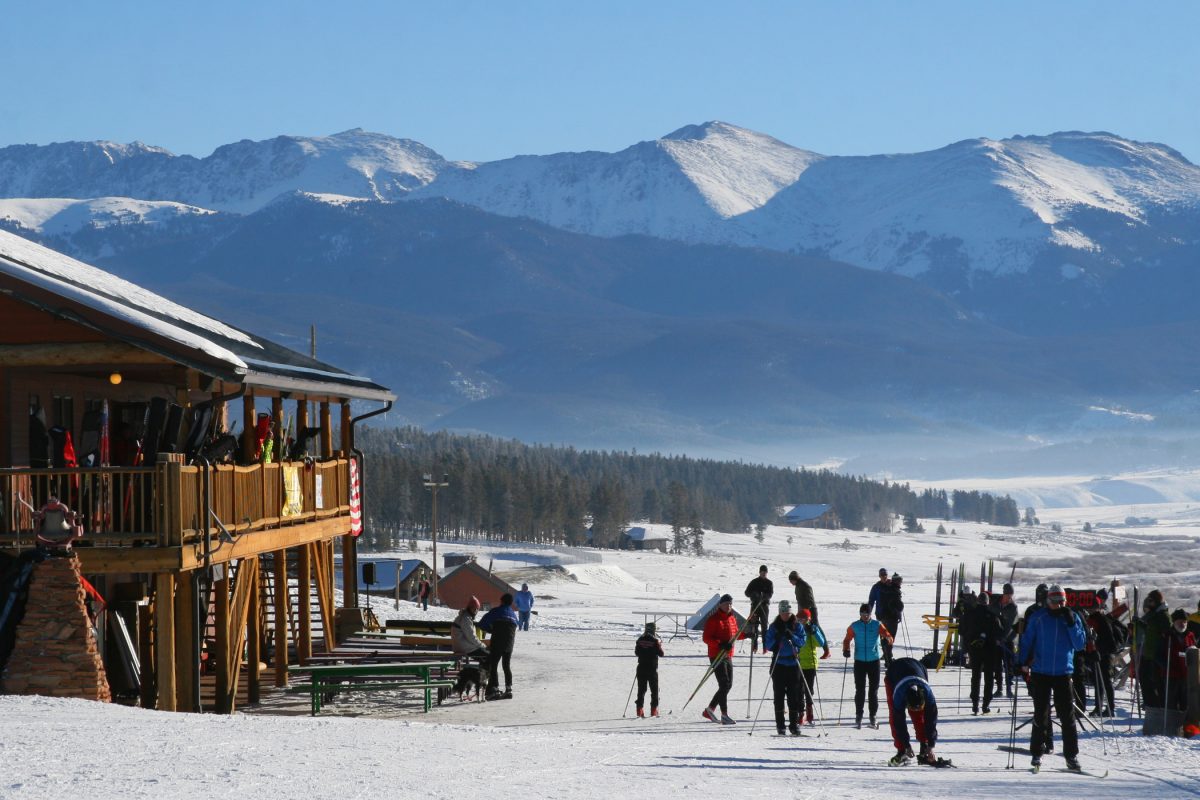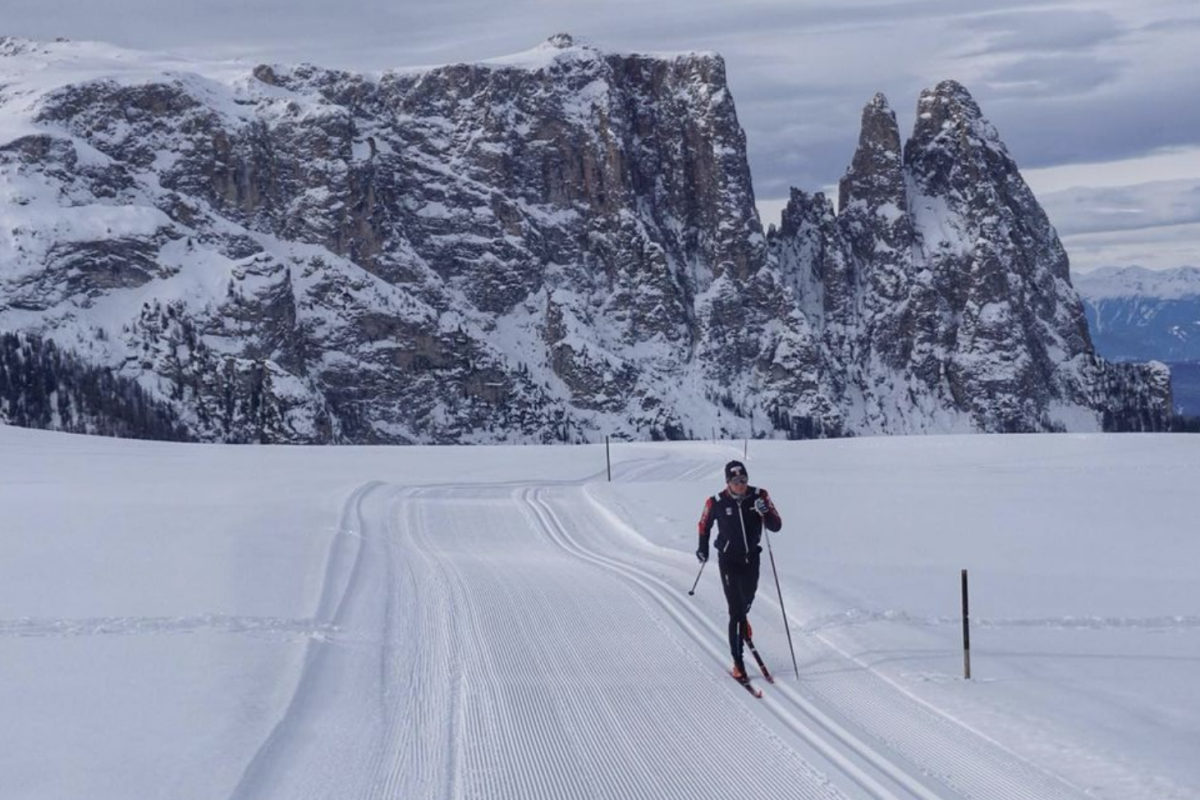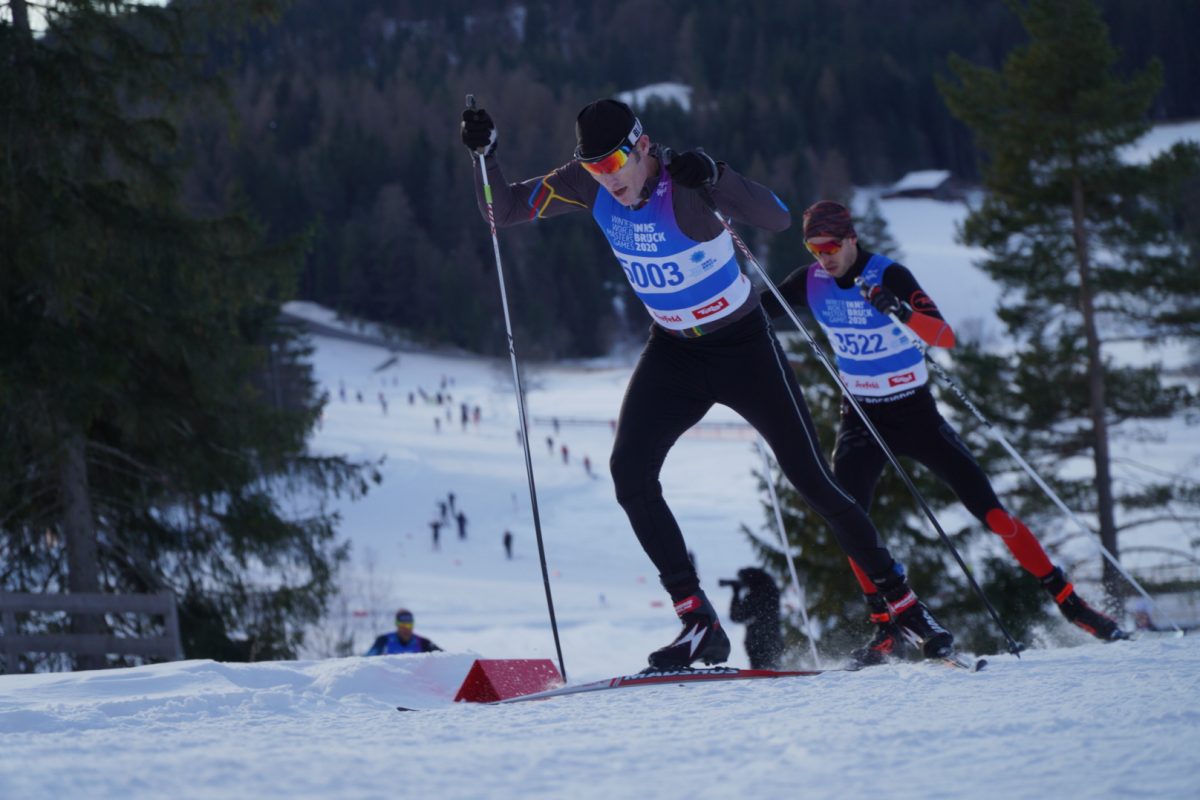Protein is a very important component of any athlete’s caloric intake, but it can be difficult to sort myth from fact when judging how much protein to incorporate into your diet. In the next few paragraphs, I hope to debunk some myths and provide you with a new pieces of information that might improve your diet and subsequently enhance your training.

Myth: You only get protein from meat.
Fact: While this is a bit exaggerated (I doubt that anyone reading FasterSkier actually believes that protein is only found in meat) there are a lot of misconceptions about how easy it is to get protein outside of a steak. It is true that meat products contain lots of good protein, but plant-based foods can provide more than enough, and they have the additional benefit of being low in fat and cholesterol. The chart at the end of this article provides a list of good protein sources, both animal and plant.
Myth: More protein means more muscle.
Fact: This myth is enthusiastically promoted by companies selling a vast array of protein bars, protein shakes, and protein powders with the claim that their products will enhance athletic performance. The truth is that these kinds of products are really unnecessary if your diet already contains the right amount of protein, and an excess of protein is completely useless in terms of muscle-building capability. An athlete training for aerobic events – like Nordic skiing – needs approximately 1.3 grams of protein per kilogram of bodyweight, or about 0.6 grams per pound, every day. That means, for instance, a 150-pound skier should be consuming somewhere around 90 grams of protein in a day.

Myth: Protein is fattening.
Fact: This is only partially a mythical statement. Protein itself is not fattening, but an excess of protein can be. When there is too much protein in the system, amino acids that make up proteins are released into the bloodstream. Other cells take up the amino acids from the blood and metabolize them to create excess pyruvate, which is stored in your body as fat.
The average American gets up to thirty percent of their daily calories from protein, which is far too much for a healthy diet. Don’t be average.
Food Serving Protein Content
Boneless Chicken Breast 3 oz 27g
Roasted Turkey 3 oz 25g
Soybeans 1 cup 22.3g
Lentils 1 cup 17.86g
Tempeh 4 oz. 17-21g
Split peas 1 cup 16.35g
Oat bran (raw) 1 cup 16.3g
Baked Beans 1 cup 12.17g
Low-fat yourt 1 cup 12g
Quinoa 1 cup 11.0g
Tofu 1/2 cup 10g
Spinach 1 cup 6.0g
Whole Wheat Bread 2 slices 5.0g
Sources: (I apologize for not including these originally as I should have done.)
- Steve Swoap, Professor of Biology, Williams College
- The Nutrition Source, Harvard School of Public Health
- Protein Requirements for Endurance Athletes, Mark Tarnopolsky, McMaster University
- The China Study, T. Colin Campbell
Maddy Wendt
Maddy is on the Nordic ski team at Williams College in Williamstown, Massachusetts, where her majors are psychology, political science, skiing, and being an awesome JA.




6 comments
dvoisin
July 21, 2010 at 9:11 am
Ok Guys, Try to qualify the opinions posted herein as such and please state both sources and/or your background in nutrition when posting articles like this that serve as a reference point for the greater skiing populace.
There are many conflicting schools of thought out there for protein amounts in a healthy diet. The problem with the American diet isn’t the amount of protein, but rather the crazy amount of carbs and trans fats.
Dan Voisin
highstream
July 21, 2010 at 6:38 pm
Since there are 28.35 grams/ounce, according to the author’s figures a 150 lb skier needs about ~3.2 oz of protein a day (90 g), i.e., about one small piece of chicken breast. You sure about that? Source?
SickterScale
July 22, 2010 at 4:26 am
chicken is not all protein, the general rule is meat and fish contains around 7-10 grams of protein per ounce. So a 3 ounce chicken breast would be from 21-30g of protein, or a third of the daily requirement for a 150 pound athlete. As you can see, between a 6 ounce piece of chicken, a cup of yogurt, a glass or two of milk, maybe an egg at breakfast, whole grain bread, brown rice etc, an athletes protein needs can be met a lot easier than one might think. This last spring I did a personal dietary assessment as part of a nutrition course, turns out I was eating about 4x the necessary protein per day. As a college student, thats a lot of extra money in grocery bills. rice/bread/pasta = cheap, protein, not so much. Not to mention I wasn’t exactly giving my body the readily accessible fuel it needed during the season by getting so many of my calories from protein as opposed to carbs. (Fat intake was at a good level.)
-undergrad exc. science student
Martin Hall
July 23, 2010 at 8:26 pm
Maddy, I don’t know your qualifications, but I do get the hint of what you are trying to do. I think you have to be careful, as the need you have for protein, is to get all the amino acids and that comes only from meat—-all these other items you have listed below will require a fair amount of research to be able to put enough of them together to satisfy the need for all the amino acids.
I also think you have missed the most important need for protein and that is not in building muscle bigger, but in consideration of the recovery process after the many hard workouts skiers do both in intensity and the big volume workouts. The muscle tissue breakdown that takes place in these workouts are just crying for protein. It is prescribed to aid this recovery to have protein as soon after the workout as possible–ideally within 30 minutes. A great way of doing this is with a hard boiled egg–easy to carry while still in the shell, doesn’t take up much space and is really easily processed and gets the muscle recovery process started very nicely.
I can tell you, in all my years of coaching, I have seem very few cases of over training, but many cases of these failing skiers in under recovering. Recovery is a 24 hour a day process and one that I know from coaching at all levels has to be continually harped on to the skiers.
Oh, yes, anything can be fattening if you eat too much of it—not just protein.
John Forrest Tomlinson
March 21, 2011 at 5:55 am
Coach Hall, the idea that a fair amount of research is needed to get all the essential amino acids from plant sources is a myth. This is clear in current scientific literature, for example:
http://www.ajcn.org/content/59/5/1203S.long
John Forrest Tomlinson
March 21, 2011 at 8:44 am
Sorry – that link may not work – here it is http://www.ajcn.org/content/59/5/1203S.full.pdf
And the key points:
1) Usual dietary combinations of proteins are complete: specific food proteins may be low in specific amino acids
2) Quality depends on the source and dietary mixture of plant proteins: can be equivalent to high-quality animal proteins
3) Proteins do not need to be consumed at the same time, the balance over a day is of greater importance
4) Animal bioassay procedures can be useful but they may underestimate plant protein nutritional quality for humans
5) Digestibility can vary according to source and food preparation: digestibility can be high
6) The intakes and balance of intakes of indispensable amino acids and nitrogen are crucial and can be adequately met from plant or plant and animal sources
7) There is no evidence that amino acid imbalances per se are important: possible imbalances can be created by inappropriate amino acid supplementation, but this is not a practical problem